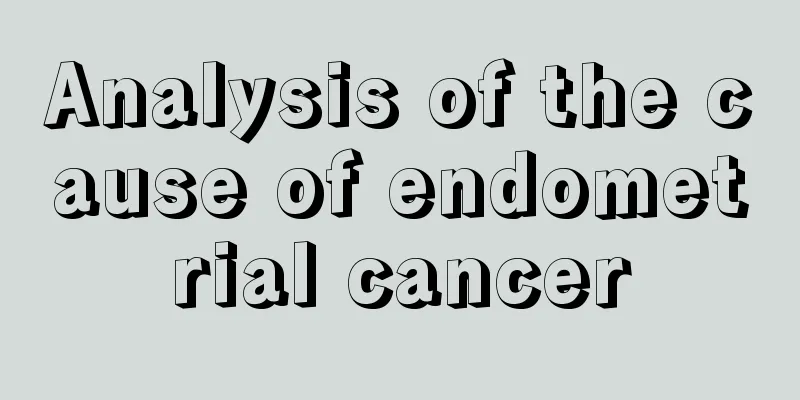Is toilet cleaner harmful to pregnant women?

|
Toilet cleaners are very common things in our daily life. We usually use toilet cleaners to clean the toilet. As we all know, pregnant women are a special group of people. They need to be extra careful no matter what they do in life. Toilet cleaners actually have little effect on pregnant women, but it should be noted that when pregnant women use toilet cleaners, it is best not to mix them with 84 disinfectant, as mixing them together will produce toxic gases. Toilet cleaner, a "magic tool" for cleaning stubborn dirt from toilets and tiles, is available in almost every household. Some consumers have found that the commonly used toilet cleaners have a particularly pungent smell, so sometimes they use laundry detergent to clean the toilet, which they feel can also clean it. Why does toilet cleaner smell so pungent? Is it necessary to use such a strong detergent for daily cleaning? Can toilet cleaner be replaced by laundry detergent? Where does the pungent smell come from? Hydrochloric acid is both a hero and a sinner Many consumers who have used toilet cleaners do not like the pungent smell it emits. Moreover, no matter what brand of toilet cleaner you choose, they will all abuse your olfactory system. The main active ingredient of common toilet cleaners on the market today is hydrochloric acid (aqueous solution of HCl), which accounts for about 5-10% of the total content. That is to say, a 500g bottle of toilet cleaner contains 25-50g of hydrochloric acid, and other active ingredients include a small amount of surfactants and additives. Hydrochloric acid is a colorless, transparent inorganic acid. The dirt in the toilet is mainly composed of alkaline insoluble substances such as magnesium hydroxide and calcium carbonate, which can react chemically with hydrochloric acid to form soluble ion solutions. Therefore, toilet cleaner relies on hydrochloric acid to achieve the dirt removal effect. In addition, the strong acid properties of hydrochloric acid itself can effectively kill microorganisms such as bacterial propagules, spores, viruses, tuberculosis bacteria and fungi hidden in the dirt. At the same time, hydrochloric acid is a substance with a strong pungent odor, and even if it is diluted to a 5-10% solution, it can easily evaporate into the air. This is also the main source of the pungent smell of toilet cleaner - it is both a hero and a sinner. What are the hazards of hydrochloric acid? Excessive inhalation of hydrochloric acid can damage the respiratory organs For the human body, hydrochloric acid is both useful and harmful - our stomach digests part of the food by secreting gastric acid, and gastric acid is essentially hydrochloric acid with a pH of about 1-2; on the other hand, excessive hydrochloric acid or high-concentration acid mist is corrosive to human tissues, and inhalation may irreversibly damage the respiratory organs, eyes, skin, etc. Other ingredients in toilet cleaners, such as surfactants, have no obvious effects on the human body. However, compared with other chemical reagents, hydrochloric acid can not only remove dirt, but also kill harmful microorganisms such as bacteria. Although it will stimulate the human olfactory system, considering the economic benefits, it is still the "best choice" for manufacturers. Moreover, manufacturers are also working hard to reduce the irritation of hydrochloric acid to the human body, such as adding appropriate amounts of aromatic substances to toilet cleaners. In fact, careful consumers will find that the smell of toilet cleaner has become less pungent with the upgrading of products, and has gradually faded or even disappeared. It should be noted that some inferior toilet cleaners on the market increase the hydrochloric acid content to 20% or even higher in order to reduce costs (the national standard stipulates that special types should not exceed 12% and general types should not exceed 5%), while reducing the surfactant content. Although this achieves the effect of descaling and sterilization, it increases the irritation to the human body. If it accidentally comes into contact with the skin during use, it will cause greater harm. Secondly, high-concentration hydrochloric acid is extremely corrosive to the glaze of bathroom ceramics, reducing its appearance and service life. How to use it correctly? Mixing toilet cleaner and 84 disinfectant can produce highly toxic chlorine gas First of all, I have to talk about a common sense issue - toilet cleaner and 84 disinfectant, a seemingly perfect pair, cannot be used together. Because 84 disinfectant is an alkaline substance, the sodium hypochlorite (NaClO) in it will react with hydrochloric acid to produce highly toxic chlorine gas, which can cause physical discomfort at the mildest and endanger life at the worst. In the laboratory, an attempt was made to mix two 500 ml bottles of toilet cleaner with 84 disinfectant, and yellow-green gas was observed to be generated, indicating that there is a possibility of producing high concentrations of chlorine gas when these two substances are used at the same time. In addition, as mentioned in the previous article, toilet cleaners are divided into general-purpose and special-purpose types, and their hydrochloric acid content is different, so you should be careful to distinguish them when using them. No matter which toilet cleaner you use, it is best to wear rubber gloves. If it accidentally comes into contact with your skin, rinse immediately with plenty of water to avoid burns. Can laundry detergent replace toilet cleaner? Laundry detergent is ineffective against alkaline dirt Some consumers have previously reported that using laundry detergent instead of toilet cleaner can achieve the same cleaning effect. Then why are there two different cleaning agents, laundry detergent and toilet cleaner? The essence of laundry detergent is actually similar to traditional detergents such as washing powder and soap, all of which are surfactants. But the difference is that washing powder and soap are anionic surfactants, which are alkaline and more irritating to the skin; while laundry detergent is non-ionic surfactant, which is mostly neutral, gentle on the skin and friendly to the environment. Toilet cleaners and laundry detergents both contain surfactants, which are substances that can reduce the surface tension between two liquids or between a liquid and a solid. When encountering ordinary dirt, laundry detergent can quickly separate it from the original attachment to achieve the purpose of cleaning; when encountering dirt composed of alkaline or insoluble salts such as scale and urine scale, neutral laundry detergent seems to be insufficient and cannot achieve the same cleaning effect as acidic toilet cleaner. Therefore, even though laundry detergent and toilet cleaner have some of the same ingredients and can achieve the same cleaning effect when dealing with common dirt, laundry detergent still cannot replace toilet cleaner. Conclusion No matter what kind of cleaning agent you use, you must pay attention to using it reasonably and in moderation. When cleaning, excessive cleaning agent will not increase the cleaning speed or cleaning effect, but will increase the cleaning cost. At the same time, when excessive detergent evaporates into the air or comes into contact with the skin, it will increase irritation to the human respiratory mucosa and damage to the skin. The various inorganic or organic acids and bases and surfactant components in the detergent will also have a certain impact on the natural environment and the entire ecosystem. |
>>: There is salt on the sweaty clothes
Recommend
How to treat advanced lung cancer? Introduction to the most effective treatment for lung cancer
In the early stage of lung cancer, there are usua...
What are the commonly used liver cancer diagnosis methods? A complete list of liver cancer diagnosis and examination methods
Primary liver cancer is highly malignant, aggress...
Benefits of drinking longan peel soaked in water
The longan that we eat in daily life is a kind of...
Is drinking cola regularly harmful to your health?
Coke is a drink that everyone likes to drink. Cok...
There are actually 3 types of adverse reactions to the DTP vaccine
The DTP vaccine is one of the vaccines that child...
Good news for prostate cancer patients
The prostate is a killer of men's health. Man...
What should I do if my butthole hurts and bleeds after pooping
If your anus hurts and bleeds when you poop, you ...
How long can black fungus be kept
Fungus is a very common ingredient. It is delicio...
How much does a colorectal cancer check cost
How much does it cost to check for colorectal can...
Brief analysis of the late symptoms of esophageal cancer
Many people may know about esophageal cancer, but...
Is it okay for men not to wear underwear?
Underwear is a protective film between the privat...
What are the advantages of comprehensive treatment of early symptoms of cervical lymphoma
What are the early symptoms of cervical lymphoma?...
Diagnostic basis of ovarian cancer
Ovarian cancer is diagnosed based on: Ovarian mal...
Metabolic acidosis is common in
The human body needs a certain acid-base balance ...
Which groups of people are most likely to have cervical cancer? What are the treatments for cervical cancer?
According to official statistics from China, cerv...









